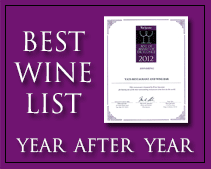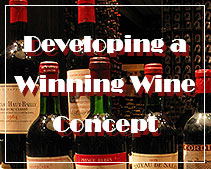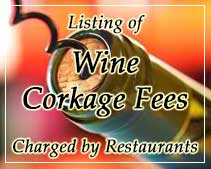Champagne and Sparkling Wine Basics
June 17, 2011
Philippines Wine Shop Clark Wine Center is pleased to share with you articles, news and information about wine, wine events, wine tasting and other topics related to wine and the appreciation of wine.
Champagne and Sparkling Wine Basics
“Come quickly, I am tasting stars,” Dom Perignon’s famous quote after his first taste of Champagne, and a fairly apt description of what a good Champagne or sparkling wine experience should offer. Is Champagne truly a wine? Where do the bubbles come from? How do I serve Champagne and sparkling wines? Any key sparkling wine suggestions? Read on for answers to these questions and more.
Is Champagne a true wine?
Yes, Champagne and other sparkling wines are truly a category of wine and it are typically derived from a blend of grapes such as Chardonnay, Pinot Noir or Pinot Meunier.
What’s the difference between Champagne and Sparkling Wine?
The Champagne we know and love comes exclusively from the Champagne region of France, and claims the honor of being the most famous of the sparkling wines. Technically, it is the only sparkling wine that may be referred to as “Champagne.” Bubbly from all other regions in the world are simply referred to as “sparkling wine.” Italy, Spain, Australia, New Zealand and the U.S. give France a run for the money by producing some fantastic sparkling wines and they are often less expensive.
What are typical Aromas and Flavors found in Sparkling Wine and Champagne?
Aroma – can be reminiscent of fresh applesauce, spiced apple, ripe pear and “fresh baked bread” smells, compliments of the yeast that’s added during the second fermentation.
Flavor – apple, pear, citrus, strawberry, cream and vanilla (typically on the finish), yeast and nutty flavors are all common denominators in Sparkling wines and Champagnes. However, if there is more ripe tree fruit on the palate, then it is likely one of the New World sparkling wines, the more subtle creamy, yeast and nut-like flavors are more common in Old World Champagne.
Where do the Bubbles Come from in Sparkling Wines?
The bubbles of sparkling wines are formed during a second fermentation process. For the second fermentation the winemaker takes still wine and adds a few grams of sugar and a few grams of yeast. This yeast and sugar convert to carbon dioxide (bubbles) and, of course alcohol. This conversion makes for millions of bubbles trapped in a very small space, sending the pressure soaring to about 80 psi in the typical bottle of sparkling wine. This second fermentation typically occurs in the actual bottle, but can also take place in the fermentation tank, it’s up to the winemaker’s preferred method.
How are Sparkling Wines Classified?
Sparkling wines and Champagnes are categorized as Extra Brut, Brut (pronounced “broot”), Extra dry, Sec and Demi-sec depending on their sugar levels. These classifications can be somewhat confusing, but keep in mind, that in wine terms “dry” is the opposite of “sweet.”
Extra Brut – is “extra” dry
Brut – dry (most popular style and very food-friendly)
Extra dry – middle of the road dry, not as dry as Brut (great as an aperitif)
Demi-sec – pretty sweet (pair with fruit and dessert)
Champagne and sparkling wines are also categorized as “vintage” or “non-vintage” (NV on the label) meaning they either come from a single year or are a blend of several different years. The “vintage” Champagnes are typically pricier, as the non-vintage Champagne and sparkling wines make up the majority of the market.
Champagne/Sparkling Wine Suggestions Priced from $10-30:
Mumm Napa Brut $24
Segura Viudas $12
Freixenet $12
Korbel Champagne Brut
Beringer Sparkling White Zinfandel $10
Jacob’s Creek Sparkling Rosé $12
Chandon Extra Dry Riche $12
Blanquette de Limoux Cuvee Jean Philippe 2002 $13
Moscato d’Asti Bruno Ceretto $16
Billecart-Salmon Brut Réserve $16
Domaine Carneros Brut Carneros $25
Mon
Montaudon Brut NV $30
Champagne Suggestons Priced from $30-50:
[ulPol Roger
Mumm Cuvee Napa Bubbly
Moet & Chandon
Pommery Champagne
Laurent Perrier Champagne
Champagne Suggestons Priced from $50-100:
Veuve Clicquot
Laurent Perrier NV
Bollinger Grande Annee
Champagne Suggestons Priced from $100+:
Moet & Chandon, Dom Perignon
Taittinger
Krug
Perrier-Jouet Bubbly
Source: http://wine.about.com/od/whitewines/a/champagne.htm
Clark Wine Center was built in 2003 by Hong Kong-based Yats International Leisure Philippines to become the largest wine shop in Philippines supplying Asia’s wine lovers with fine vintage wines at attractive prices. Today, this wine shop in Clark Philippines offers over 2000 selections of fine wines from all major wine regions in the world. As a leading wine supplier in Philippines, Pampanga’s Clark Wine Center offers an incomparable breadth of vintages, wines from back vintages spanning over 50 years. Clark Wine Center is located in Pampanga Clark Freeport Zone adjacent to Angeles City, just 25 minutes from Subic and 45 minutes from Manila.
Wines from Burgundy, Bordeaux, Rhone, Loire, Spain, Portugal, Germany, Austria, Alsace, USA, Australia, New Zealand, Italy, South Africa, Chile and Argentina etc. are well represented in this Clark Wine Shop.
For more information, email Wine@Yats-International.com or visit http://www.ClarkWineCenter.com
You can skip to the end and leave a response. Pinging is currently not allowed.







